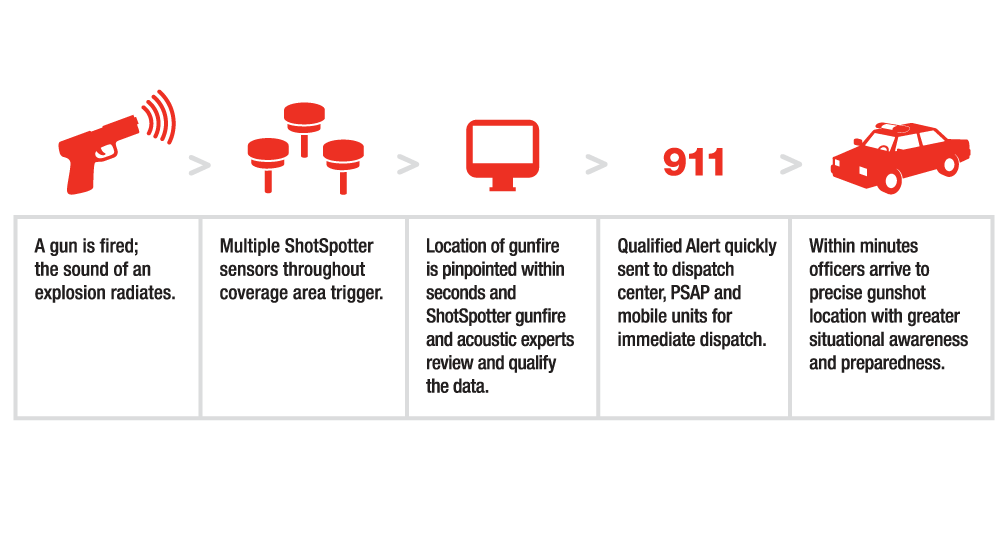The Baltimore Police Department will deploy technology this summer that alerts officers when guns are fired on city streets.
ShotSpotter, which is made by a California company of the same name, utilizes audio sensors placed on lightposts and buildings to detect gunshots. Police said the sensors will be deployed across ten square miles, with five each in East and West Baltimore. The company also employs workers who analyze gunshots, and alert police. The company says it can provide the alert in 30 seconds to a minute. Officers and dispatchers receive alerts via app.
At a news conference on Friday, police officials said the system four shootings in West Baltimore since initial launch Thursday at 5 p.m. No victims were located when officers arrived at each scene, while officers found shell casings at one scene.
Police plan to use the technology with Baltimore’s Citiwatch camera system, and also recently stood up predictive policing centers in the Eastern and Western police districts called Strategic Decision Support Centers.
“Gunshot detection technology is another tool in the toolbox. Gun crimes are the driving force behind violent crime in Baltimore,” BPD spokesman TJ Smith said via email. The technology will “put our officers in position to respond quicker to shots being fired hence increasing our opportunity to catch the offender while using intelligence to prevent crime from occurring.”
Smith said the department is in the process of rolling out ShotSpotter, and expect it to be fully up and running this summer. A notice posted on Facebook indicates police and ShotSpotter employees conducted a test in West Baltimore on May 29. Police have also conducted community meetings in the Eastern and Western Districts to provide information about the technology.
ShotSpotter said it is used in more than 90 locations in the U.S. The city got funding for the technology through a $5 million donation from Bloomberg Philanthropies for police techn that was announced in late 2017.
The implementation comes after several years of consideration by city officials. In 2014 and 2015, the city considered implementing ShotSpotter but ultimately decided against it. The effort was restarted in 2016. Mayor Catherine Pugh indicated support for expanding the technology after taking office last year.
“Central to our strategy to reduce violence is the utilization of the latest crime fighting technology,” Pugh said in a statement. “We are confident that the implementation of this sophisticated intelligence gathering capability will enhance our efforts to get illegal guns and criminals off our streets.”
Baltimore police to begin using gunshot detection technology







